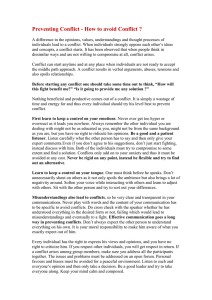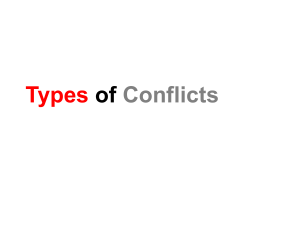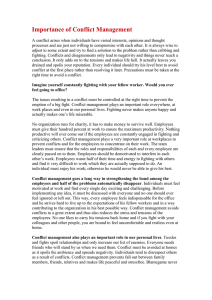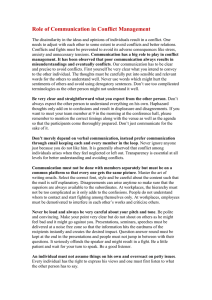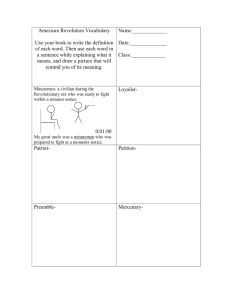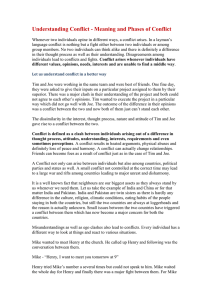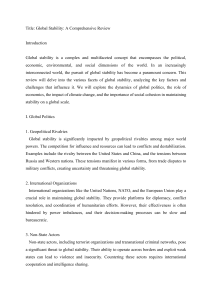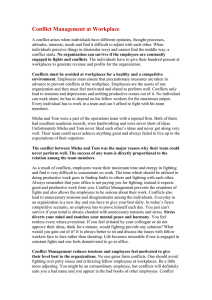Conflict Management
advertisement
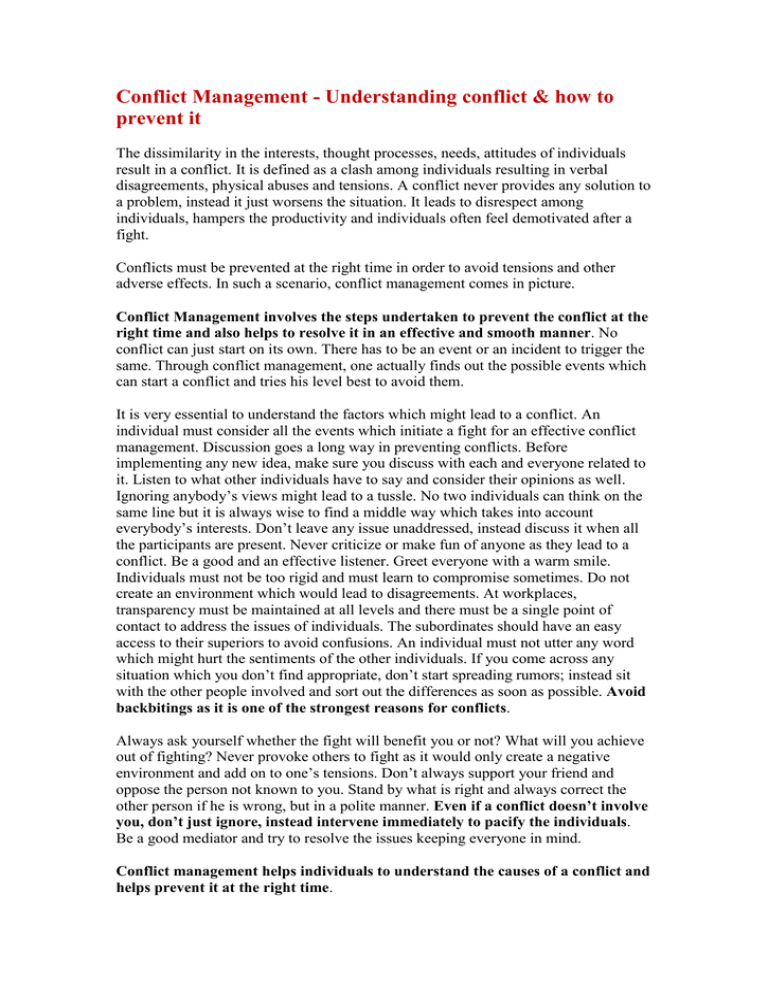
Conflict Management - Understanding conflict & how to prevent it The dissimilarity in the interests, thought processes, needs, attitudes of individuals result in a conflict. It is defined as a clash among individuals resulting in verbal disagreements, physical abuses and tensions. A conflict never provides any solution to a problem, instead it just worsens the situation. It leads to disrespect among individuals, hampers the productivity and individuals often feel demotivated after a fight. Conflicts must be prevented at the right time in order to avoid tensions and other adverse effects. In such a scenario, conflict management comes in picture. Conflict Management involves the steps undertaken to prevent the conflict at the right time and also helps to resolve it in an effective and smooth manner. No conflict can just start on its own. There has to be an event or an incident to trigger the same. Through conflict management, one actually finds out the possible events which can start a conflict and tries his level best to avoid them. It is very essential to understand the factors which might lead to a conflict. An individual must consider all the events which initiate a fight for an effective conflict management. Discussion goes a long way in preventing conflicts. Before implementing any new idea, make sure you discuss with each and everyone related to it. Listen to what other individuals have to say and consider their opinions as well. Ignoring anybody’s views might lead to a tussle. No two individuals can think on the same line but it is always wise to find a middle way which takes into account everybody’s interests. Don’t leave any issue unaddressed, instead discuss it when all the participants are present. Never criticize or make fun of anyone as they lead to a conflict. Be a good and an effective listener. Greet everyone with a warm smile. Individuals must not be too rigid and must learn to compromise sometimes. Do not create an environment which would lead to disagreements. At workplaces, transparency must be maintained at all levels and there must be a single point of contact to address the issues of individuals. The subordinates should have an easy access to their superiors to avoid confusions. An individual must not utter any word which might hurt the sentiments of the other individuals. If you come across any situation which you don’t find appropriate, don’t start spreading rumors; instead sit with the other people involved and sort out the differences as soon as possible. Avoid backbitings as it is one of the strongest reasons for conflicts. Always ask yourself whether the fight will benefit you or not? What will you achieve out of fighting? Never provoke others to fight as it would only create a negative environment and add on to one’s tensions. Don’t always support your friend and oppose the person not known to you. Stand by what is right and always correct the other person if he is wrong, but in a polite manner. Even if a conflict doesn’t involve you, don’t just ignore, instead intervene immediately to pacify the individuals. Be a good mediator and try to resolve the issues keeping everyone in mind. Conflict management helps individuals to understand the causes of a conflict and helps prevent it at the right time. http://www.managementstudyguide.com/conflict-management.htm
